Court orders criminalising homeless, charity claims
- Published
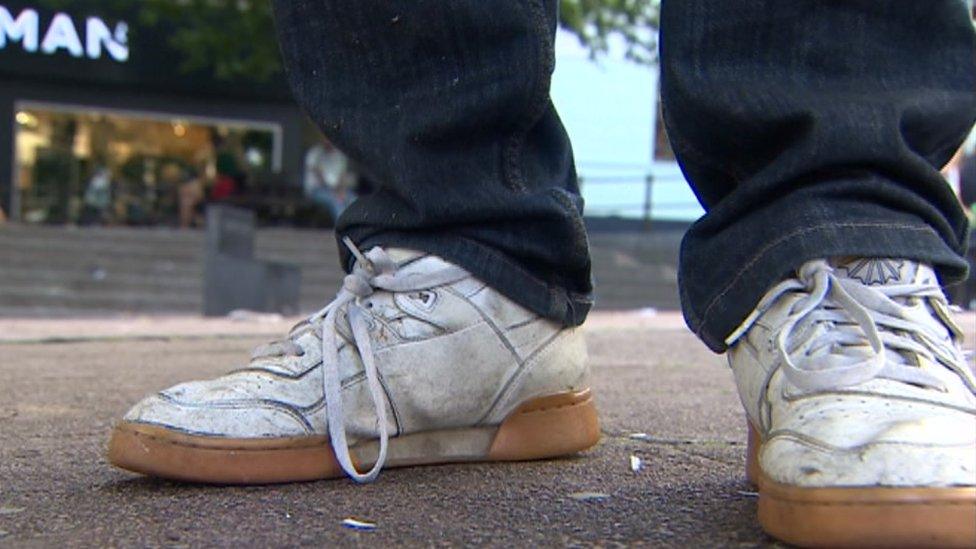
"John", who is an alcoholic, said his Criminal Behaviour Order prevented him from accessing services he needed
Court orders being imposed on homeless people are "criminalising those most in need," a charity has said.
Criminal Behaviour Orders (CBOs) give courts powers including banning people from areas or from drinking in public.
But charity Homeless Link said CBOs, which replaced anti-social behaviour orders (ASBOs), prevented homeless people from accessing vital services.
The Home Office said local agencies must determine whether their use of their powers was appropriate.
CBOs were introduced in October 2014 and more than 2,600 are currently active, according to Freedom of Information requests made by the BBC.
Thirty-eight police forces in England and Wales provided statistics.
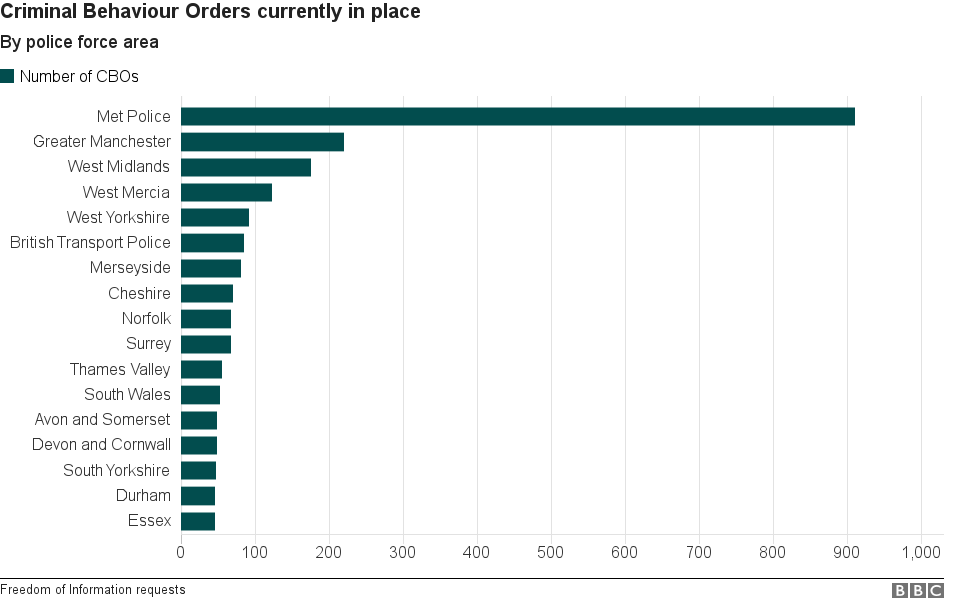
Breaches incur a maximum five-year prison term.
Ministry of Justice figures show that in 2016, a total of 952 CBOs were issued following conviction at courts in England and Wales.
That figure rose from 707 the previous year, an increase of 35%.
'Punishing most vulnerable'
John (not his real name) has a CBO preventing him from entering certain areas of Norwich under certain conditions.
He said he was given the banning order for being drunk in public.
"I kicked off so they decided to give me a CBO," he said.
John, an alcoholic, said the order stopped him from getting the help he needed, located in the city centre.
"I have to go into a shop and nick a sandwich because I can't come into the city centre," he said.
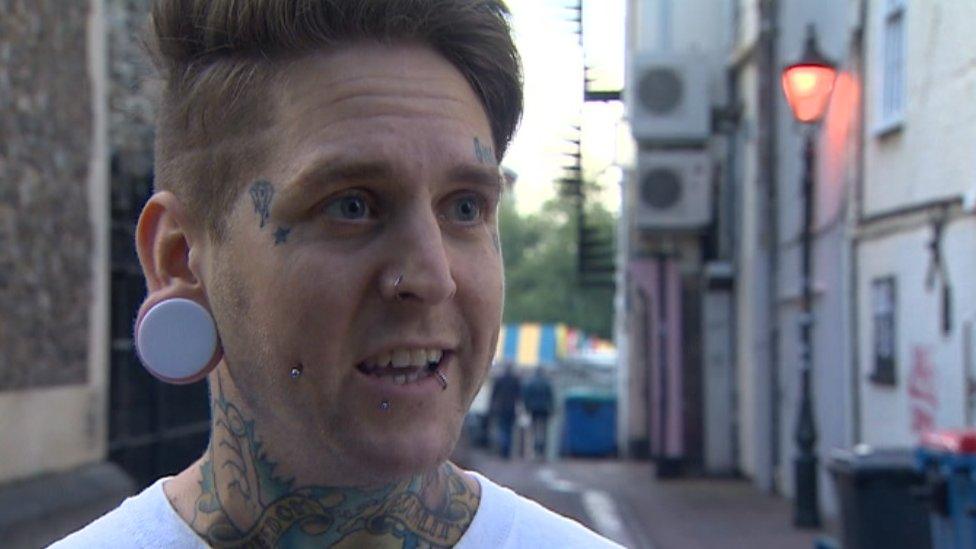
Dale Parker, co-founder of The People's Picnic, said CBOs failed to address the underlying issues of criminal behaviour
Dale Parker, co-founder of The People's Picnic, which provides home-cooked meals to help vulnerable people in Norwich, said CBOs failed to address the underlying issues of criminal behaviour and isolated the most vulnerable homeless people.
"The majority of services and outlets where people come to get food or the basics are in the city," he said.
"More often than not, the only crime those people have committed is the crime of being poor."
Root causes
Jacqui McCluskey, of Homeless Link, the national membership organisation for homelessness charities in England, said issuing CBOs to those most in need was "no answer" to the rising numbers of people sleeping rough or finding themselves homeless.
She said the focus should instead be on providing the support needed to help people off the streets for good.
"We would urge authorities to work in partnership with local homelessness services to identify those who are sleeping rough and ensure that effective support is in place, including long-term solutions such as personal support, assistance into employment and increased availability of low-cost housing," she said.
"The priority needs to be tackling the root causes of homelessness, rather than punishing the most vulnerable in society."
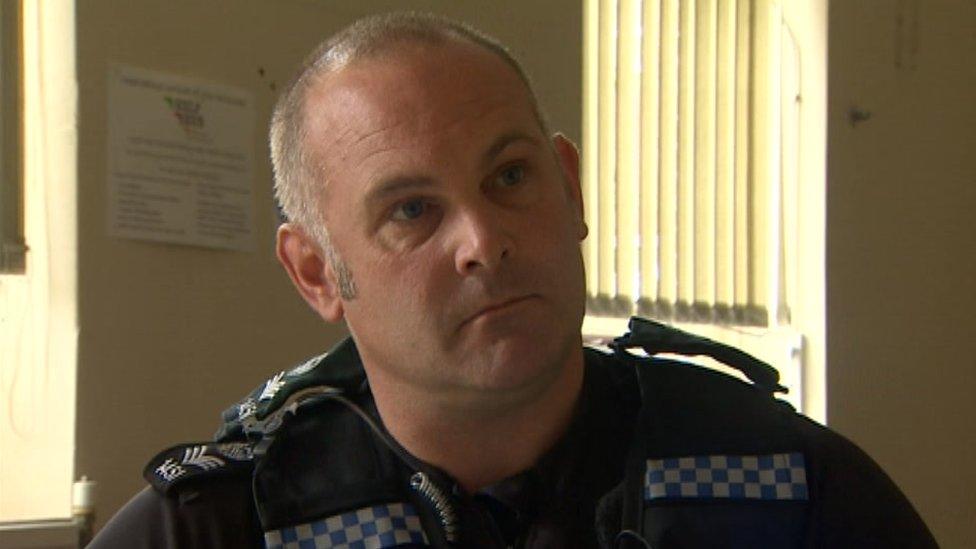
Sgt Mark Shepherd said orders were drawn up for each individual and took into account the services they needed
Sgt Mark Shepherd, public order tactical adviser for Norwich, said the orders allowed individuals access to the services they needed, and did not accept they led to further crime.
He said: "Each one is for an individual person, at the same time identifying those services that can take them away from their offending lifestyle."
A Home Office spokesperson said: "We are determined to help the most vulnerable in society.
"We are clear that the anti-social behaviour powers should be used to tackle anti-social behaviour, not to target the most vulnerable in our communities. It is for local agencies to determine whether their use of their powers is appropriate.
"We are working to tackle anti-social behaviour, while also supporting people to move on from a life on the streets."
- Published5 April 2017
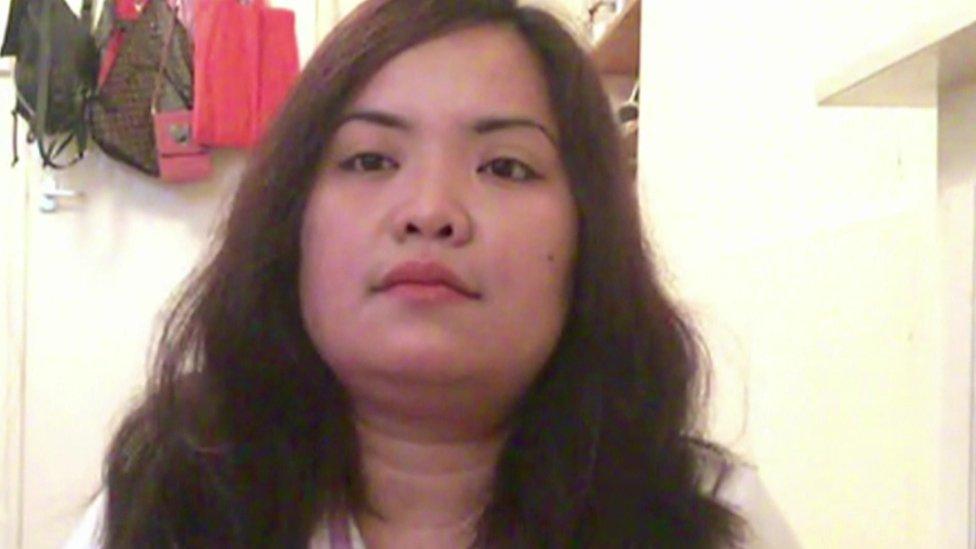
- Published4 February 2017
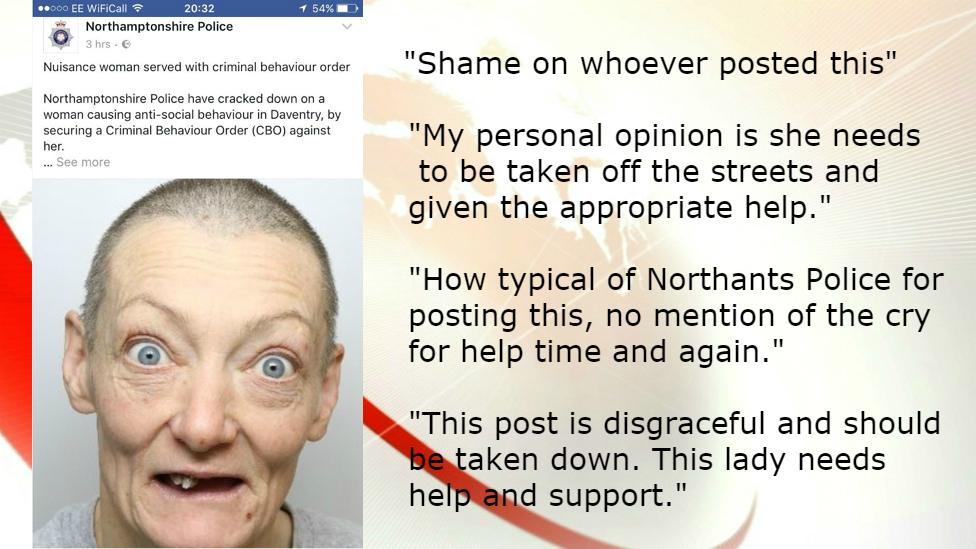
- Published22 May 2012